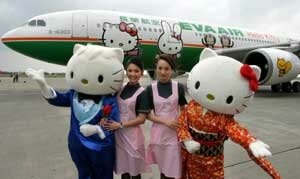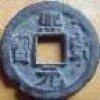Former Taiwanese President Lee ripped apart the Mainland’s Communist government in Los Angeles, his last stop on his American trip, as reported by the Taipei Times:
In an explosive speech in Los Angeles on the last leg of a 13-day US tour that has infuriated Beijing, Lee called for capitalist nations to shun investment in China, which he likened to the 1930s appeasement policy towards German dictator Adolf Hitler and later Soviet leader Joseph Stalin.
"As long as the capital from free countries continues to pour into China, China’s already oppressive practices will become more entrenched and the ensuing and ever-expanding militarism will make the likelihood of transition to a peaceful country ever more unlikely," he said.
Lee is known for being hypercritical of the mainland government, and when I read this I was preparing a moderate defense of the CCP, noting recent reforms and changes of rhetoric in favor of democracy. Then I came across some commentary over at Shanghailist on a recent white paper, "Building of Political Democracy in China," (full English text here) which suggests that rhetoric may be a new way for the CCP to legitimize its own authoritarian power. A Financial Times editorial lays out the best analysis I’ve found:
The 74-page government policy paper entitled "The Building of Political Democracy" seeks to justify autocratic Communist party rule in much the same way that Asian dictators have defended their regimes since the 1950s.
Genuine democratic demands are portrayed as "anarchic", in contrast to the party’s paternalistic guidance of the people towards prosperity and harmony. Echoing the "Asian values" popular with authoritarians in the 1990s, the paper says "China’s socialist political democracy has vivid Chinese characteristics". It shamelessly defines democratic government as the Communist party ruling on behalf of citizens with a view to perfecting "the people’s democratic dictatorship".
The fact of publication - this is the first such paper on this subject to be issued by the Chinese government - is of greater significance than the rather predictable contents. One theory is that the report was, like previous white papers, a response to foreign criticism and an attempt to explain China’s position to the outside world; the theory was lent weight by the coincidental presence in Beijing this week of Donald Rumsfeld, the US defence secretary.
Seems to me that Lee is right that democratic reforms are not imminent on the Mainland, at least in the short term.
For some more background, see this NY Times summary piece. A Taiwanese take is here.

 The thing that really struck me about this one was the fairly clear statement of Gresham’s Law in the fourth line from the end. Actually, a bit of googling quickly showed that Gresham’s law (Bad money drives out good) is older in the West than I had thought. More interestingly, this does not really seem to be Gresham’s Law, or at least it was not understood that way by the Chinese authors who wrote about it. According to wikipedia Gresham applies when two forms of money are available, one (bad money) with a larger spread between the face value and the commodity value. This was not how Chinese economic thinkers looked at it, however. According to von Glahn Fountain of Fortune: Money and Monetary Policy in China, 1000-1700 California U.P. 1996 Chinese monetary theory usually assumed that “the purchasing power of the medium of exchange was solely a result of its quantity, in the form of money, in relationship to the supply of all other commodities.”(p.33) That paper money had no intrinsic value was not a problem, since Chinese money was usually seen as fiat. This explains why the Chinese started using paper money so much earlier than anyone else.
The thing that really struck me about this one was the fairly clear statement of Gresham’s Law in the fourth line from the end. Actually, a bit of googling quickly showed that Gresham’s law (Bad money drives out good) is older in the West than I had thought. More interestingly, this does not really seem to be Gresham’s Law, or at least it was not understood that way by the Chinese authors who wrote about it. According to wikipedia Gresham applies when two forms of money are available, one (bad money) with a larger spread between the face value and the commodity value. This was not how Chinese economic thinkers looked at it, however. According to von Glahn Fountain of Fortune: Money and Monetary Policy in China, 1000-1700 California U.P. 1996 Chinese monetary theory usually assumed that “the purchasing power of the medium of exchange was solely a result of its quantity, in the form of money, in relationship to the supply of all other commodities.”(p.33) That paper money had no intrinsic value was not a problem, since Chinese money was usually seen as fiat. This explains why the Chinese started using paper money so much earlier than anyone else.


































